Last Updated on 29 July 2025 by Greg Brookes
If you’re looking to improve your stamina without logging endless miles on the treadmill, kettlebells offer a smarter solution. With just one or two kettlebells, you can build muscular endurance, boost cardio fitness, and condition your entire body, all in one session.
Unlike traditional cardio, kettlebell endurance training keeps the muscles under tension while raising your heart rate. The result is a workout that challenges both your strength and stamina, improving how long you can perform physical tasks without fatiguing.
In this guide, I’ll show you how to structure kettlebell endurance workouts, the best exercises to use, and how to progress safely while keeping your joints healthy.
Kettlebell endurance workouts are a powerful way to build stamina, muscular endurance, and cardiovascular fitness all in one. Unlike traditional cardio, kettlebell training challenges your heart, lungs, and muscles at the same time, helping you stay fit, strong, and resilient.
In this article, I’ll show you how to structure kettlebell endurance workouts, the best exercises to include, and how to progress safely while keeping your joints healthy.
Why Use Kettlebells for Endurance?
Traditional endurance training usually involves repetitive, low-load activities like jogging or cycling. But with kettlebells, you can build cardio and muscular endurance simultaneously.
Benefits include:
- Time-efficient cardio: Combine strength and endurance in one session.
- Full-body conditioning: Target multiple muscle groups at once.
- Increased grip and core endurance: Essential for longevity in training.
- Low-impact but high-intensity: Safer on the joints than pounding the pavement.
How Kettlebell Endurance Training Works
Endurance with kettlebells means sustaining effort over time without losing form or control. This can include:
- Higher reps with lighter loads
- Longer work intervals
- Timed sets (EMOM, AMRAP, intervals)
The goal is to keep moving, maintain technique, and build a heart rate response that improves stamina without breaking down.
Key Kettlebell Exercises for Endurance
When building endurance, choose exercises that are dynamic, fluid, and allow continuous movement.
Kettlebell Swings
(See full breakdown in: Kettlebell Swing Two Hands)
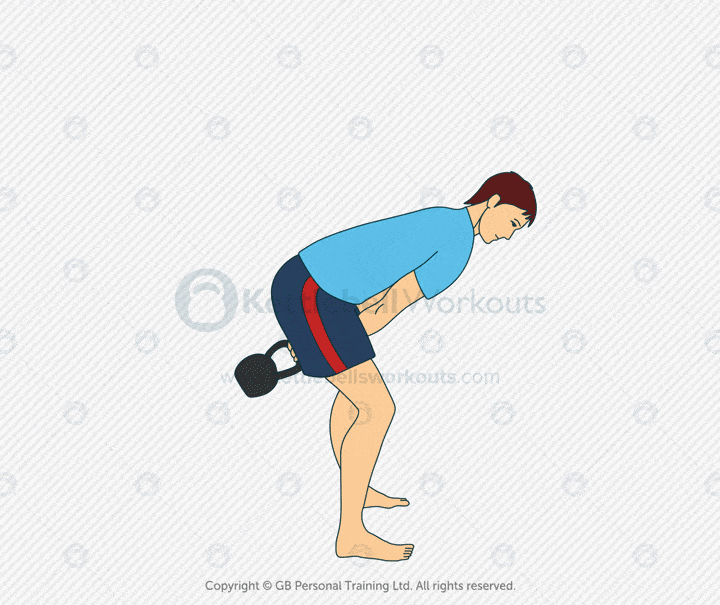
- Purpose: Posterior chain endurance, cardiovascular fitness.
- Tip: Use a smooth rhythm, not max power.
Kettlebell High Pulls
(See full breakdown in: Kettlebell High Pulls)
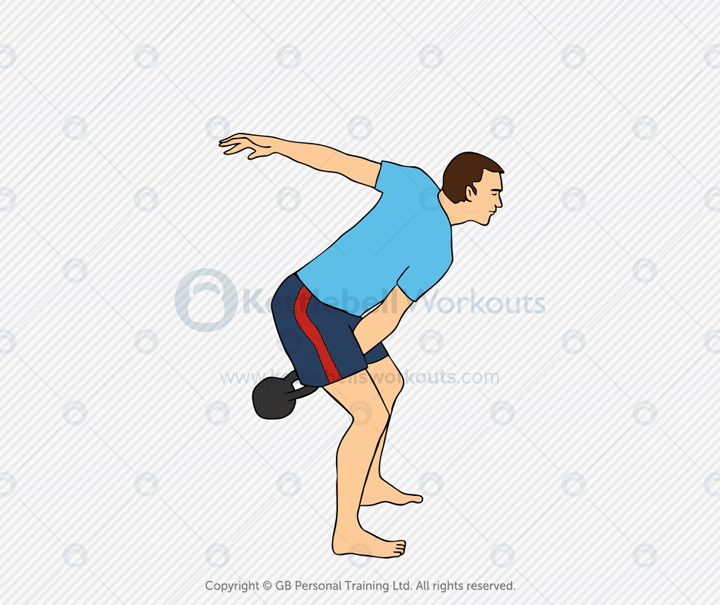
- Purpose: Shoulder and upper back endurance, grip conditioning.
- Tip: Keep the movement controlled and avoid over-pulling.
Kettlebell Snatches
(See full breakdown in: Kettlebell Snatch)
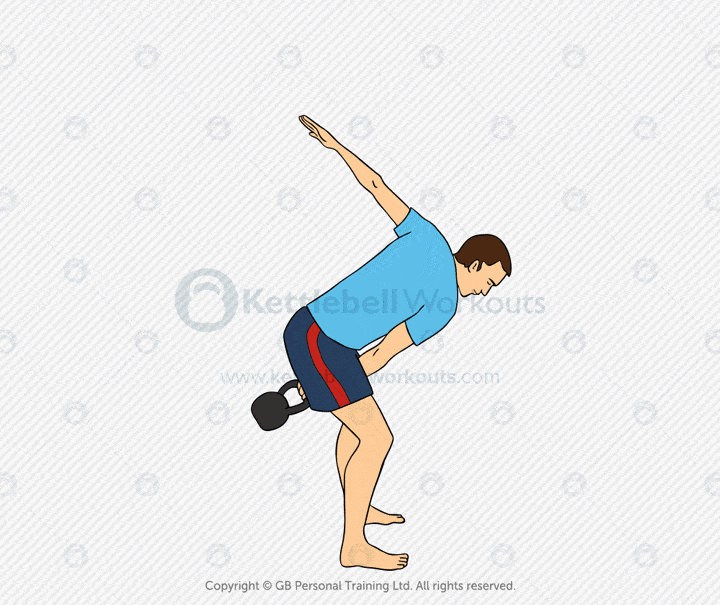
- Purpose: Full-body power endurance.
- Tip: Alternate sides every 5-10 reps to manage fatigue.
Kettlebell Thrusters
(See full breakdown in: Kettlebell Thruster)

- Purpose: Leg, core, and shoulder endurance.
- Tip: Maintain a fluid transition from squat to press.
Kettlebell Squat to Press
(See full breakdown in: Kettlebell Squat and Press)
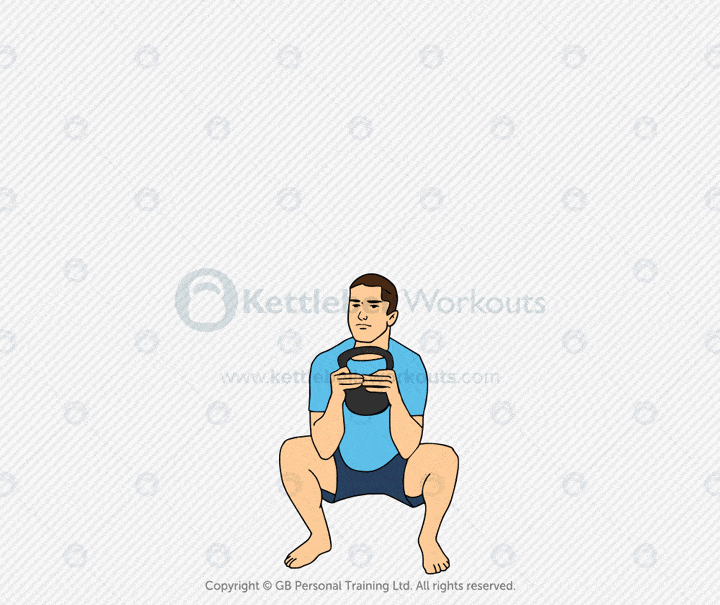
- Purpose: Combines lower and upper body endurance in one movement.
- Tip: Use the legs to assist the press to reduce shoulder fatigue.
Sample Kettlebell Endurance Workouts
Here are a few of my favourite kettlebell endurance workouts you can try.
1. EMOM (Every Minute on the Minute)
- Kettlebell Swings – 20 reps at the start of each minute.
- Duration: 10-20 minutes depending on fitness level.
2. AMRAP (As Many Rounds As Possible)
- 12 Kettlebell Swings
- 10 Kettlebell High Pulls (10 per side)
- 8 Kettlebell Thrusters (8 per side)
- Duration: 15-20 minutes.
3. Timed Flow Circuit
- Kettlebell Swing One Arm x 10 per side
- Kettlebell Clean x 10 per side
- Kettlebell Squat to Press x 10 per side
- Repeat for 12-15 minutes without putting the kettlebell down.
Progressing Your Kettlebell Endurance Training
Start with shorter workouts and lighter loads. As your endurance improves, increase:
- Duration: Add time to EMOMs or AMRAPs.
- Density: Reduce rest between sets.
- Complexity: Use more advanced flows or double kettlebell work.
Common Mistakes to Avoid
- Using too heavy a kettlebell: Endurance training is about sustaining effort, not max strength.
- Losing form due to fatigue: Always prioritise technique.
- Skipping warm-up: This leads to injury over time.
Coach’s Insight: Greg’s Take
When I first started using kettlebells for endurance, I made the mistake of going too heavy and turning the workouts into strength sessions. Over time, I learned that lighter weights, longer sets, and maintaining rhythm are the keys to building real-world stamina.
Endurance training isn’t about max reps, it’s about sustainable effort with control. That’s what leads to lasting results.
Final Thoughts
Kettlebell endurance workouts are one of the most efficient ways to build both cardio fitness and muscular stamina in the same session. They’ll help you move better, last longer, and stay resilient without sacrificing strength.
Start light, focus on consistency, and enjoy the process of becoming a more enduring, capable version of yourself.
Endurance is just one of the many ways to use kettlebells. Explore other kettlebell training goals here.
Frequently Asked Questions
2-3 times per week alongside strength-focused sessions works well.
For many people, yes. Swings build cardiovascular fitness while also strengthening the posterior chain.
Choose a weight you can swing or snatch for 15-20 reps without losing form. Lighter than your strength workouts.
Yes, just start with low reps and short intervals to build up capacity gradually.

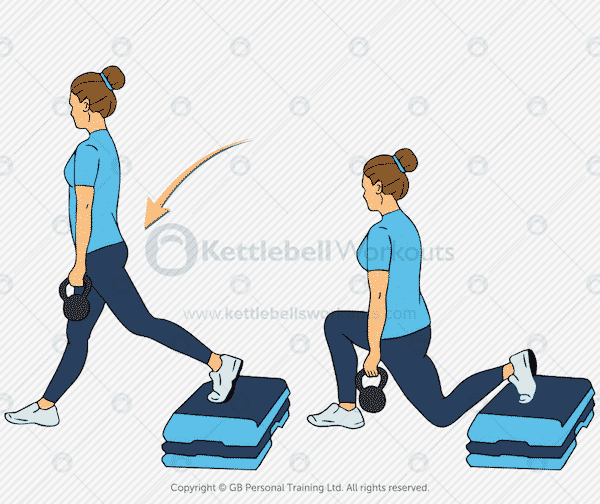
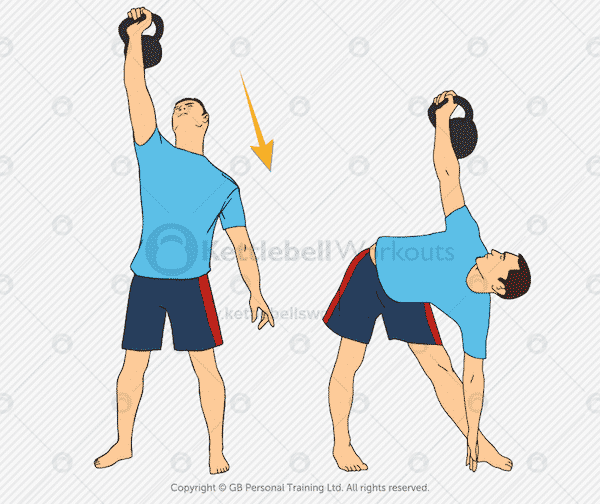
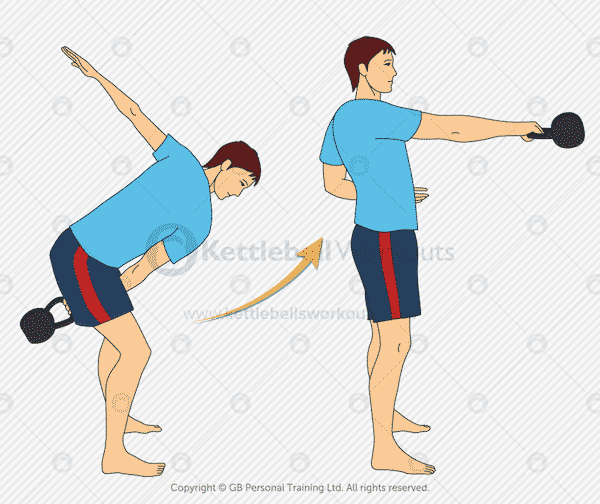
Comments